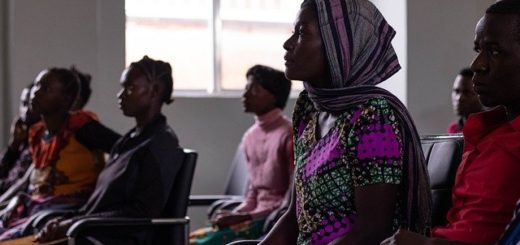Consultancy Vacancy: Gender and Political Research Consultant, Oslo Center
1. Introduction
The Oslo Center was founded in 2006. It is a democratic support organization focusing on supporting democratization processes. The Oslo Center’s approach to democracy assistance is by providing technical assistance to promote and enhance democratic practices by strengthening governance, political and government institutions, and civic spaces.
The Oslo Center has since 2011 been working in Kenya to support democracy through the provision of technical expertise to institutions of democracy and governance mainly political parties, women and youth in political parties, and the Office of the Registrar of Political Parties (ORPP).
2. Rationale: Background Information
Women comprise more than 50% of Kenya’s population, yet this huge demography is not well reflected in political leadership. Currently, women account for 22% in the National Assembly, 33.3% in the Senate, and 34% in the County Assemblies. A deeper analysis of the statistics denotes those women leaders are mostly elected through party lists to close the gender gap and not directly voted in by the citizens on the ballot. Only 6.6% of the women were elected directly through the ballot as Members of County Assemblies (MCAs), 7.9% as Members of the National Assembly, and 6.4% as Senators.
There have been several identified barriers to women’s political participation. In the 2022 elections, women reported financial and sociocultural challenges. Several women candidates got directly elected at the gubernatorial and national parliament level; 7 Governors, 3 senators, 30 Single Constituency MPs, and 47 women county MPs. This though is an increase compared to the 2017 elections, underrepresentation of women is still a challenge. At the county assemblies, the electability of women has been affected by the identified barriers resulting in low numbers of women MCAs who are directly elected through the ballot. Despite increased concerted efforts by civil societies to continuously enhance women’s knowledge, skills, strategies, and attitudes towards competitive politics, there has been a low attempt to tackle barriers that have been a major hindrance to women’s electability.
3. Objectives of the study
The main objective of the study is to analyze the systemic barriers to women’s electability at the National and County levels and make recommendations for the engagement of women in political processes and further analyze women in select counties.
The Study will seek to determine the following:
a. Assess the barriers to women’s leadership and influence in local political processes in Kenya according to i) female candidates, ii) local influencers, and iii) citizens.
b. Analyze and identify the systematic, type, and categories of barriers to local female leadership in politics
c. Analyze the numerical electability trajectory of women at the county level d. Provide key recommendations for both short-term and long-term strategies toward advancing women’s participation and representation in the political processes at the county level.
4. Scope of work
The consultancy will document, profile, and generate gender-disaggregated data on women’s leadership and participation in political processes. The consultant will infuse an intersectional feminist lens to capture the experiences and voices of women in their diversity. The research will have a national approach but with an additional specific focus will be on Kajiado, Nakuru, and Kirinyaga counties where TOC implemented the Women Political Leadership Program.
5. Study Methodology
The study will adopt a mixed research approach to collect and analyze data from both primary and secondary sources. The methodology will be participatory, engaging different stakeholders in meaningful and appropriate ways to ensure inclusion, reflecting on and respecting stakeholder diversity (especially gender, age, and special interests groups) as a minimum.
6. Expected Deliverables
The Research Consultant is expected to produce the following.
a. Research and methodology proposal
b. Research tools include questionnaires and interview guides.
c. Data set including the database of the participants to be included in the study
d. Draft report with research findings and recommendations.
e. Report focusing on Analysis of women’s performance in party primaries and post-party primaries
f. Report on systemic barriers to women’s electability.
7. Timelines
The research is expected to begin in September and take about 15 days from the date of signing the contract.
8. Qualifications and attributes required
The consultant should have demonstrated expertise in conducting feminist research in the field of democratic and good governance, women’s participation in governance processes, facilitating multistakeholder processes, communication for development, and a human rights-based approach.
Individuals interested in this assignment must meet the following minimum requirements:
▪ Master’s Degree in Political science, Law, public administration, or equivalent experience
▪ Extensive experience in conducting feminist action research.
▪ At least 10 years of experience in conducting research in the field of democracy and governance, promotion of women’s rights, democracy, and political governance policy, and human rights training.
▪ Experience in qualitative data collection and analysis, ability to organize and moderate focus group discussions.
▪ Ability to establish priorities, and to plan, coordinate and monitor own work.
▪ Good interpersonal skills, and ability to work in a consultative and collaborative manner.
▪ Ability to establish and maintain effective partnerships and working relationships in a political environment
▪ Proven ability to adapt the research plan to challenges and opportunities emerging during the research
Qualified candidates are requested to a technical proposal including the methodology for the research assignment and financial proposal. Application letters and resumes for key personnel that will be involved in the study.
The application should be sent to ock@oslocenter.no on or before 9th September 2022. Kindly indicate GENDER AND POLITICAL RESEARCH in the subject line of the email.
Only shortlisted candidates will be contacted.








